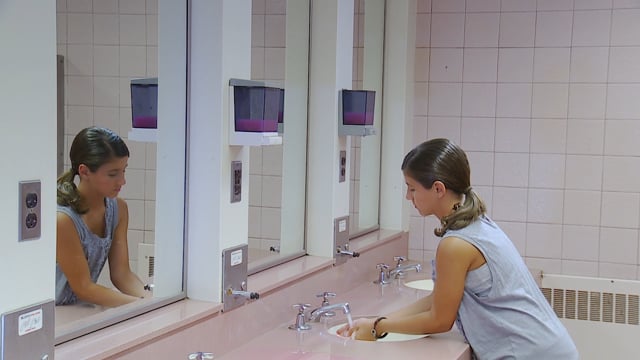- Parents Home
- Para Padres
- A to Z Dictionary
- Allergy Center
- Asthma
- Cancer
- Diabetes
- Diseases & Conditions
- Doctors & Hospitals
- Emotions & Behavior
- First Aid & Safety
- Flu (Influenza)
- Food Allergies
- General Health
- Growth & Development
- Heart Health & Conditions
- Homework Help Center
- Infections
- Newborn Care
- Nutrition & Fitness
- Play & Learn
- Pregnancy Center
- Preventing Premature Birth
- Q&A
- School & Family Life
- Sports Medicine
- Teens Home
- Para Adolescentes
- Asthma
- Be Your Best Self
- Body & Skin Care
- Cancer
- Diabetes
- Diseases & Conditions
- Drugs & Alcohol
- Flu (Influenza)
- Homework Help
- Infections
- Managing Your Weight
- Medical Care 101
- Mental Health
- Nutrition & Fitness
- Q&A
- Safety & First Aid
- School, Jobs, & Friends
- Sexual Health
- Sports Medicine
- Stress & Coping
Hand Washing: Why It's So Important
Why Is Hand Washing So Important?
It's a message worth repeating — hand washing is by far the best way to keep kids from getting sick and prevent the spread of germs.
What's the Best Way to Wash Hands?
Here's how to scrub those germs away. Teach this to your kids — or better yet, wash your hands together often so they learn how important this good habit is:
- Wet your hands with clean, running water (warm or cold). Make sure the water isn't too hot for little hands.
- Use soap and lather up for about 20 seconds. Antibacterial soap isn't a must — any soap will do.
- Make sure you get in between your fingers, on the backs of hands, and under the nails where germs like to hang out. And don't forget the wrists!
- Rinse and dry well with a clean towel.
When Should We Wash Our Hands?
To stop the spread of germs in your family, make regular hand washing a rule for everyone. It's especially important:
- before eating and cooking
- after using the bathroom
- after cleaning around the house
- after touching animals, including family pets
- before and after visiting or taking care of any sick friends or relatives
- after blowing one's nose, coughing, or sneezing
- after being outside (playing, gardening, walking the dog, etc.)
How Do Clean Hands Help Health?
Good hand washing is the first line of defense against the spread of many illnesses — from the common cold to more serious infections, such as meningitis, bronchiolitis, the flu, hepatitis A, and many types of diarrhea.
How Do Germs Spread?
Germs can spread many ways, including:
- touching dirty hands
- changing dirty diapers
- through contaminated water and food
- through droplets in the air released during a cough or sneeze
- on contaminated surfaces
- through contact with a sick person's body fluids
When kids have contact with germs, they can become infected just by touching their eyes, nose, or mouth. And once they're infected, it's usually just a matter of time before the whole family comes down with the same illness.
So don't underestimate the power of hand washing! The time you spend at the sink could save you trips to the doctor's office.

How to Clean Your Hands
You know that cleaning your hands is the best way to stop the spread of germs, but what’s the right way to wash your hands and use hand sanitizer?
- Fighting Germs
- Germs: Bacteria, Viruses, Fungi, and Protozoa
- Food Poisoning
- Colds
- Flu (Topic Center)
- Group A Strep Infections
- Diarrhea
- Food Safety

© 1995- The Nemours Foundation. KidsHealth® is a registered trademark of The Nemours Foundation. All rights reserved.
Images sourced by The Nemours Foundation and Getty Images.
